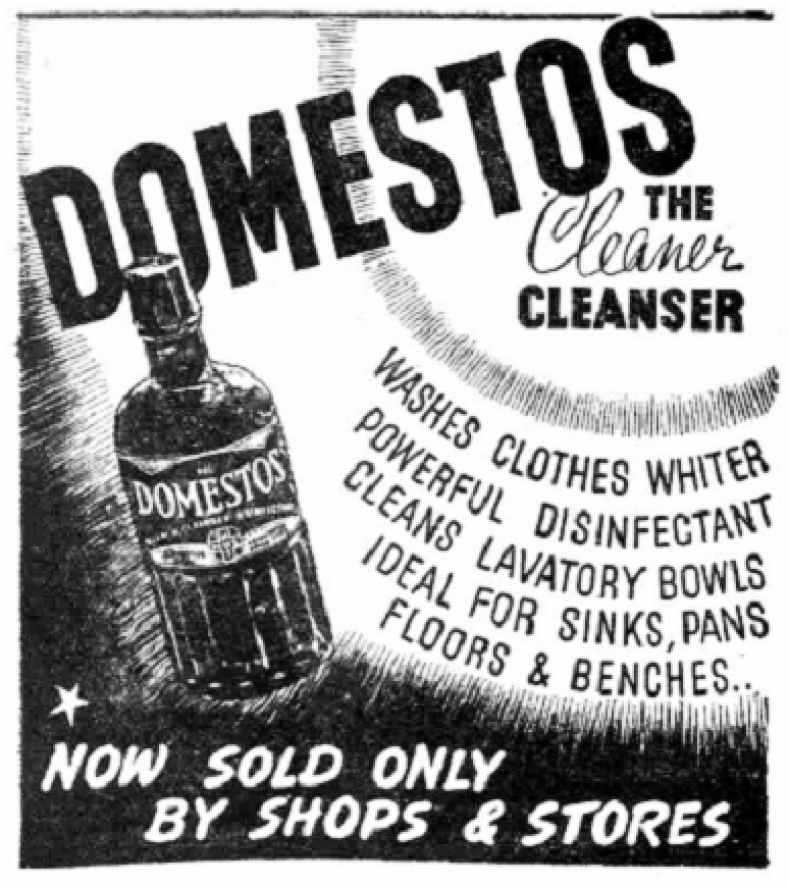
Handley, Wilfred Augustine
1901- 1982
Entrepreneurial creator of famous household brands
Enterprise and philanthropy often go hand-in-hand. Money is made by an imaginative and industrious individual who feel compelled to give back to society to help others. This pattern is reflected in the life of Wilfred Augustine Handley who was born in Essex but raised in Gateshead with his parents, George and Dorothy, three brothers and three sisters. His father was something of a jack of all trades, working successively as an insurance agent, ship’s blacksmith, and dental mechanic. Wilfred likewise became a dental mechanic, while his younger brother Cecil became a dentist, having trained at the dental school of King’s College, Newcastle.
The family moved after the end of the First World War to live in Chillingham Road, Heaton. It was here that Wilfred had his big entrepreneurial idea, having recognized the power of sodium hypochlorite as a general cleaning agent during his work as a dental mechanic. The chemical, a bleaching agent, was a by-product of other processes and could be bought cheaply from the ICI works at Billingham. In 1929, Wilfred set up the Hygiene Disinfectant Services to sell the chemical to housewives in brown jugs, sold door to door, as a general purpose cleaning agent, which was especially valuable for getting washing whiter. His salesmen initially travelled by bicycle with a tank attached to refill the brown jugs for pennies. Wilfred branded the product Domestos. To this, he added other household products to create a range of disinfectants, liquid detergents, shampoos and polishes.
The business rapidly took off. In 1936 the Hygiene Disinfectant Services was incorporated as a company under the name Domestos Limited, with Wilfrid and his wife Ivy, who he had recently married, as the principal shareholders. Wilfred had begun manufacturing in a small warehouse on the Newcastle Quayside but moved in 1938 to much larger premises, the College Works, in Byker. Domestos was now sold in green bottles with a small refundable on return deposit. Sales depots were established across the country. Mass distribution was boosted by mass marketing. Growth continued during and after the Second World War, stimulated by the addition of other winning brands like Stergene, specially formulated for washing woollens, and clever advertising using memorable slogans, still in use today, of which “Domestos kills all known germs” is the most famous. In 1961, the business was sold to Lever Brothers and Wilfred realized his fortune. Domestos, like Fairy, another Newcastle brand, remains a UK market leading product.
Now a wealthy man and head of a well-off family, Wilfred Handley looked to give back to the society that had nurtured him. In 1963 he established the W A Handley Charity and over the next two decades built up its endowment and capacity for grantmaking. Over the past 55 years, the trust has distributed the equivalent in today’s money of tens of millions of pounds to grassroots charities across the North East, helping sustain a vibrant third sector.
References
Charities Commission (2018). The W A Handley Trust: Trustees’ Report and Financial Statements for the Year Ended 31 March 2017. Available here (Accessed 02/10/2018).
Jackson, C. (2017). White Teeth to Blue Bottle: The Domestos Story. Heaton Historical Society. Available here (Accessed 01/10/2018).
Unilever PLC (2018). Domestos Limited. Unilever Art, Archives and Records Management. Available here (Accessed 02/10/2018).